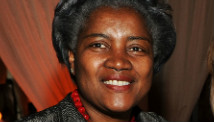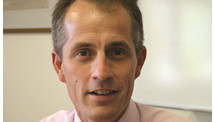Moments after screaming in court, "I did not kill Kathleen," Drew Peterson was sentenced to 38 years in prison for the 2004 murder of his third wife Kathleen Savio.
Peterson had faced as much as 60 years, but Judge Edward Burmila said he gave Peterson some consideration for his years as a police officer and his service in the military. Peterson is 59.
The sentence was handed down after Peterson, who did not testify at his trial, made an emotional appeal to the judge, at times appearing to choke up as he argued that he was convicted by "rumors, gossip, outrageous lies and, most importantly, unreliable hearsay."
"I don't deserve this," he told Burmila. "I don't deserve this."
Peterson, a former Bolingbrook police sergeant, was convicted last fall of drowning Savio in her bathtub. Prosecutors have said they believe Peterson also killed his missing fourth wife Stacy and could seek charges in that case.
Peterson began his appeal to the judge today by telling him, "Good day, my name is Drew Peterson. I hope I don't aggravate the situation here, but I have a lot of things to be said." Then he screamed, "I did not kill Kathleen!"
"Yes, you did," a woman said.
"Ma'am, I'd like you to leave the courtroom," Burmila said. "And Mr. Peterson, don't make any outbursts that are designed to aggravate people."
"I'm sorry, your honor. I must have been woozy," Peterson said.
After the sentencing, State's Atty. James Glasgow dismissed the outburst as a "shrill, kind of feminine screech."
Peterson insisted to the judge he is the victim of an unjust and invasive police investigation that ignored or lost evidence that could have shown his innocence. He accused the state police of falsifying reports.
"What they did uncover was rumors, gossip, outrageous lies, and most importantly, unreliable hearsay. Hearsay that pierced three privileges that have stood for centuries," Peterson said.
Peterson bitterly complained that the Rev. Neil Schori betrayed his promise never to repeat anything that was said by Peterson or Stacy. Schori testified at trial that Stacy confided to him that she lied to state police about Peterson's alleged slaying of Savio.
"Out of the privileged information from Neil Schori, the state police was able to create" a case, he said. "I find it hard to believe that the state was able to take information that they obtained illegally and turn it to their benefit."
Kathleen Savio’s divorce attorney Harry Smith, who also testified at trial about a conversation he had with Stacy before she disappeared, "gave up privileged information from both Kathy and Stacy, like it was yesterday's garbage," Peterson said. "Ultimately, it led to my conviction.
"Hearsay is a scary thing. There's no proof. Anything can be said and nobody's accountable for the truth.
"In my experience, in divorce situations everybody lies, and everybody lies under the instruction of their attorneys.
"There was an incident where Kathleen exited the house ... and punched Stacy in the face. They went to trial, my 9- and 10-year-old sons were called to testify, and under oath they lied," Peterson said.
"On their next visit, I questioned them, 'Why’d you guys lie?' They said Harry Smith told them to. They didn’t want their mom to go to jail,” Peterson said, growing emotional as he spoke. “I couldn't be mad at them.”
"Stacy provided me an alibi for Kathleen's death. Then she later said she was lying about that. Seems like Stacy was lying all the time about everything. But the state's attorney picked and chose what they wanted to believe.
"Stacy clearly had a crush on the Rev. Schori, which I think was a factor in this.
"There was a constant and consistently illegal activity by the state’s attorneys, including the state’s attorney himself.
"So what did the state’s attorney do? They hire a skinny ... spokesperson (Stacy Peterson family spokeswoman Pam Bosco) to go out and say anything she wants. It buffered the state’s attorney’s office from anything the court might bring.
"And when it came time for a vote from the grand jury, only a handful of people were selected. Not the entire grand jury was brought in to do the vote. Pretty much guaranteed ... that I was indicted, which I was.
"There was a first investigation on this case, in which probably one of the most experienced investigators was the first one on the scene in this case, and he determined Kathleen's death was an accident.
"Dr. (Bryan) Mitchell looked at Kathy's body when it was in its freshest state. He determined her death was an accident."
So did the coroner's jury, Peterson said. "All this was done when the evidence was freshest."
Peterson then paused and asked for some water. He resumed by talking about his service in the military and lengthy law enforcement career.
"I was probably one of the highest-decorated officers in the Bolingbrook Police Department," he said.
"I always took my job seriously, I never violated the public trust," he said, his voice husky with emotions. "And I never beared false witness against anyone.
"I loved having a job that helped people," he said. "In my private life, I ran up to six companies at one time. I employed nearly 100 people.
"Until this happened, I thought I was a great guy," he said. "And in moments, the media turned me into a monster.
"As soon as I get a chance, I'm going to get a tattoo on my back, from shoulder to shoulder, that says, 'No good deed goes unpunished.' "
He said he loved Savio and called her a good wife and mother who did not deserve to die, but insited it was an accident. He then talked about Savio’s upbringing, calling it difficult and abusive.
"The most pathetic thing I’ve ever seen in my life was the night after our wedding, when I held Kathy and she cried because her father failed to show up and give her away on her wedding.
"At Kathy's wake, friends and family put money in cards and envelopes to help cover the cost of the funeral.
“I paid for the funeral."
"That's a lie right there," a man in court shouted.
"I paid for Kathy’s funeral at the request of her sister, who's sitting right there," Peterson said.
He then attacked State's Atty. James Glasgow.
"Mr. Glasgow, all aspects of my life have been destroyed. Everything from my personal life to my professional life to my social life -- all aspects have been destroyed. And I tell you this to give you greater cause for celebration, when you celebrate the fact that you perpetrated the largest railroad job in the history of this country.
"Since I've been incarcerated, I've had nine family members who have died, six of which were cousins," Peterson said. None of them made it past the age of 60, he said.
“And in telling you this, I'm not looking for any sympathy, but anything you sentence me to, you're sentencing me to the Department of Corrections to die!" Peterson said.
Peterson said he believes his constitutional rights have been violated.
"And I think the only thing left to make this case run true to form would be a cruel and unusual punishment. And I don't think anybody would care because nobody cares. I can't believe I spent 32 years defending a constitution that allowed this to happen to me. I can't believe people fought and died in wars protecting a constitution that allowed this to happen to me.”
America should be outraged, but nobody cares, he said.
"I take full responsibility for my relationship with the media," Peterson continued. "I just wanted them away from my home because they were scaring my kids. They hounded me. I agreed to go on TV and tell my story and ask for legal help.
"Everybody from busy bodies like Nancy Grace ... to that ridiculous movie that played repeatedly before and during my trial.
"It pretty much guaranteed that I would not get a fair trial. It's pretty clear that the state took part in that movie because things I remember saying only to the state police appeared in that movie," Peterson said, apparently referring to a Lifetime TV movie starring Rob Lowe as Peterson.
"I'm an obnoxious man by nature, truly. And after 30 years as a police officer, as is normal with a police officer, my defense mechanism is comedy. The media took that and capitalized on that, and my obnoxious nature showed through. But I want to ensure the court that at no time did I want to portray any insensitivity about Kathy's death. That was not my intention.
“I hope Mr. Glasgow looks me in the eye right now. Never forget my face! Never forget what you’ve done.
“Originally I had some cute and funny things to say. But now in closing, it's time to be sentenced to a life of hardship and abuse in prison. I don't deserve this, I don't deserve this.
“Thank you.”
Earlier in the afternoon, Savio’s sister Anna Marie Savio-Doman told the judge that "my loss of my baby sister is beyond words. There will be no more birthday parties, backyard gatherings, holiday celebrations or other family activities to share. The laughter, hugs, guidance, advice, sense of security and those opportunities to say ‘I love you’ are forever gone.
“One of the hardest things for me is knowing the pain and fear that Kathleen must have suffered at the time of her murder. The horror and betrayal she must have felt when she realized that someone she had trusted and loved more than anything was actually killing her. I wonder if she could feel her heart breaking when she thought about leaving her two boys forever. The helplessness she must have felt knowing she was going to die.
“I have to say it hurts a lot. I hope it gets better, but I am not confident it will get better. I still talk to her. I hope she can hear me.”
Susan Doman described her sister as a “rock” and told the court she looked up to Savio, even though Savio was younger. She also expressed her anger toward Peterson.
“He showed no remorse,” she said. “For years I watched Peterson parade on TV, radio, photo shoots, and (that) radio promotion to win a date with him. That was a big joke to him. And he loved all the attention.
“Your honor, the defendant shows no remorse to this day for the horrible crime that he did to my sister Kathleen. This senseless action is inexcusable. I am placing my trust that you will give Kathleen justice once and for all.”
The judge also read a statement from Savio’s father, but not aloud.
In arguing for a maximum sentence, Glasgow reminded the judge about the damage done to his young children with Stacy. Prosecutors have said they believe Peterson killed Stacy and could seek charges in that case.
"Not only is their mother gone, but also their father is gone, as he sits before you," Glasgow said.
Glasgow said Peterson also should not get a break for living a law- abiding life because of his attacks on his second wife, when he threatened to kill her.
"There's a recurring them here with Mr. Peterson. He’s a police officer, and there's a number of occurrences with the victims here being afraid to call the police department.
"These are obviously very dangerous situation, and in this case, led to the demise of two young women."



